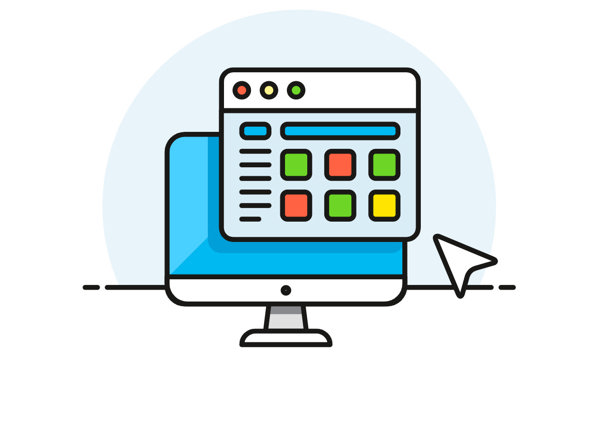Coming to Alberta on your own, or with your family, means learning many new things. You’ll be adapting to a new culture and new ways of doing things. You may be looking for a job to support you and your family.
There are many organizations and websites which can help you work through these changes and be better prepared to make the best choices.
Finding work is up to you
The workplace in Alberta may be very different from that in the country you’ve come from. Even if you’ve come to Canada as a skilled worker, you might need more training and experience to get a job in Alberta, or to improve your English skills.
The economy, and the number of people already working in the type of job you want to do, will also make a difference in how easy it is to find work. By studying labour market information, you can find out which fields of work have the most job opportunities right now, and in the future.
In Alberta, employers decide who they hire. It’s up to you to look for a job and prove to the employer that you’re the best person to do that work.
Hasina – Taking a new career direction
Hasina was a translator and teacher in her home country of Egypt. When she moved to Alberta, her teacher training was not the same as Alberta teacher training. Because she spoke many languages, she got a job in an office where they needed someone who spoke French. When the office accountant left their job, Hasina started doing some of that work. She liked it and decided to get more training. After hard work, she became an accountant. “You can always start something new,” she says.
Many jobs are posted on the internet, job boards, or in newspapers. But many aren’t so easy to find. If you use more than one way to search for a job, you’ll have more success.
There are many things you can do to get a job in Alberta. As you begin, ask yourself:
- What companies hire people in my occupation?
- What job titles are in my occupation in Alberta?
- Is demand for workers increasing or decreasing?
- What are the salaries?
- What are the opportunities for me to be self-employed in my occupation in Alberta?
Think about your first job in Alberta
You might find the job you want right away. But your first job in Alberta might not be what you’re trained to do. There are lots of different ways to get the new training you need to find the work you really want.
Think about the skills you have that you could use in different types of jobs. Alberta employers are looking for people who can do certain tasks, but who also have skills that can be used in more than one job.
When you apply for a job, you need to tell the employer why they should hire you. They need to know about things like your training, skills, and other jobs you’ve held.
Resumés have all of this information in one or two pages. The alis website has a lot of information on how to write your resumé and how to apply for a job.
Your resumé for an Alberta employer may look different from what you used before coming to Alberta. Here are some tips to follow when writing a resumé for Alberta employers:
- List the type of work you want to do (this is called your employment objective) close to the top.
- List your work-related training, and skills close to the top so employers see it right away.
- Give a short, detailed description of the type of work you did in your past jobs.
- List your most recent education (high school and afterwards) closer to the end.
- Do not list your personal information like your age, religion, and if you are married.
- Do not include your picture.
Employers may ask for a copy of, or original, documents that prove your education and training. If these aren’t in English, you can find help with translations through the Government of Alberta and other agencies.
As you prepare your resumé, you should also create these other work search tools:
- A list of references: people who agree to tell an employer about your work skills. Plan for how to find your references, especially if you’ve never worked in Alberta or Canada.
- A cover letter: a short (less than a page long) letter telling the employer what makes you right for the job. Cover letters do not just repeat what is in your resumé.
Prepare for your job interview
After you apply for a job, you might be chosen for a job interview. Interviews are an important part of getting work, and in Alberta they are treated as a business meeting. They can be done by one person, or by a panel (more than one person).
“Albertans are very polite. Just because an employer is nice to you in an interview, do not assume the job is yours. You have to wait until everyone is interviewed, and then the employer will contact you.”
—A counsellor at an immigrant-serving agency
Ask who will be interviewing you, so you know what to expect. In Alberta, interviews are often done by a mix of:
- Managers and supervisors
- Human resources staff
- A person who doesn’t work for the company, who the employer hires to interview you
During the interview, employers will want to know:
- If you have the right skills
- If you can talk easily with other people
- Your past work experience
- If you will be at work on time and get your work done every day
- If you need more training
Be ready to answer all the questions people ask you, and to ask the employer questions.
For your protection, Alberta laws identify certain things you do not have to tell an employer about, or put in your resumé. Employers are allowed to ask if you’re at least 18 years old, because there are different rules for younger workers in Alberta. They can also ask if you’re allowed to work in Canada. If you have a Social Insurance Number (SIN), or have applied for one, that usually means you can work in Canada. You don’t have to give your SIN to your employer until you are hired for the job.
Starting your new job in Alberta
In Alberta, when people talk about workplace culture, they’re talking about things like work hours and what to wear. But they’re also talking about how people work together, behave at work, your rights on the job, and the employer’s values.
It may take some time to get used to workplace culture in Alberta and to your new workplace. Some of the rules are written down, others are unwritten.
Albertans usually smile and say “how are you” or “nice to meet you” when they meet someone. People use each other’s first names at work even when they meet for the first time.
You dress differently for different jobs in Alberta. Some workplaces want you to wear business clothes, others are more casual. Some have uniforms, nametags, and rules about wearing safety equipment like a hard hat, and steel-toed boots.
Don’t wear strong smells, like perfume or aftershave, because some people may be allergic or bothered by these. Smoking is not allowed at Alberta workplaces.
During your interview, and when you start your new job, listen and watch how other people talk to each other, dress, and how they behave. If you’re not sure what to do, ask. This way you’ll make a good first impression and feel more comfortable.
Your rights and responsibilities at work
There are laws in Alberta to make sure workplaces are safe, healthy, and fair, and to stop discrimination at work.
Amin – A possible case of discrimination
Amin emigrated from Morocco and had worked for a company in Alberta for nearly two years. But he was still classified as a “temporary worker,” which meant he couldn’t get company benefits and could lose his job without warning. He noticed Caucasian workers, who had been at the job for less time than he had, were getting permanent or long-term jobs and higher wages. Amin contacted the Alberta Human Rights Commission to talk about making a complaint.
The number of hours you work depends on the type of job you have, and Alberta has rules about work hours. Always be on time and work all of your hours. If you’re going to be late, call your supervisor and tell them why. You might have to work for extra time or take shorter breaks to make up for being late.
Other tips for working in Alberta
Major decisions are often made by managers, but Alberta employers like employees who have ideas and new solutions. When you start a new job, you may have to check in more often with your supervisor. With time, you’ll become more comfortable working on your own and making decisions.
Some workplaces have unions. Unions deal with employers to work out how much workers are paid, work hours, vacation time, and other work-related issues. If you become a union member, you’ll have to pay union fees or dues.
Most Alberta employers value teamwork, which is employees working together to share ideas, solve problems, and get things done. It’s important that you can work well with others.
Keep learning
Once you have a job, it’s important to keep learning. This will help you develop your skills and can help you set new goals in your life.
- Improve your English skills
- Learn from your co-workers, about simpler things like office phones or photocopy machines, complex things like new computer programs, or the culture of Alberta’s workplaces.
- Some employers offer training to help employees develop new skills and knowledge. Ask your employer about what training you might be able to take.
- Professional and trade organizations often offer training for their members. Check with your organization for more information.
- Find a mentor. Mentors are people who want to share their experience and what they’ve learned, to help you. They can be any age and work in any job, at your work or outside your workplace. Talk to people you work with about finding a mentor. You’ll learn more about work and could build a strong relationship with that person.



